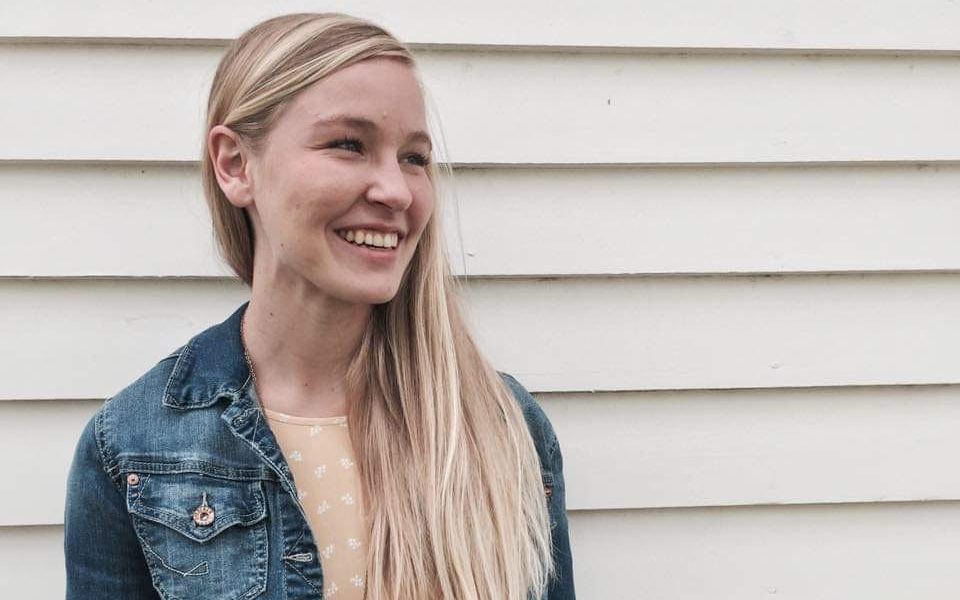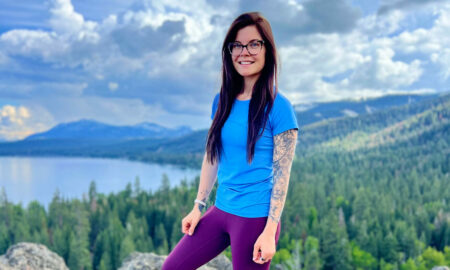

Today we’d like to introduce you to Katie Collier.
Katie, please share your story with us. How did you get to where you are today?
My life journey has largely been influenced by my faith journey. I grew up in a small town, where I spent most of my time playing sports and being with my church family. I experienced some traumatic events at a young age, which left me wrestling with lots of questions for God and fears about the world. In the town where I grew up, I had never heard of anyone going to mental health counseling, so it was not until I moved to Austin for college when I was first exposed to peers who had been to counseling and spoke highly of it. I decided to try out the counseling center at my new church (the Austin Stone) and it was one of the best decisions I ever made. I experienced so much healing and freedom through going to counseling there, and both my faith and my functioning in all areas of my life drastically improved. Originally, when I set out for college, I had planned on going to medical school so I could become a doctor. However, when I saw how important mental health was for all other areas of health, I decided that I wanted to be a social worker instead. Social workers do pretty much the same things as counselors, but we place a larger emphasis on the importance and the influence of an individual’s social environment on their life experience. We also work with individuals, families, and groups to eliminate barriers to healthcare, so part of our job includes changing the policies and practices of certain systems to accommodate more people.
As a future social worker (still, have 1 year of grad school left), my goal is to help others find the same healing and freedom that I did when someone took the time to listen to and help me process my story. In my studies and experience so far, I have observed a sharp divide between faith-centered counseling and more secular counseling approaches. As a result, another goal of mine is to bridge the gap between both faith-centered and secular counseling approaches. There is incredible value in both, and I think we see the best outcomes when we integrate elements of both approaches.
We’re always bombarded by how great it is to pursue your passion, etc. – but we’ve spoken with enough people to know that it’s not always easy. Overall, would you say things have been easy for you?
Not one bit. Making the decision to go to counseling in the first place was a tough decision, because of the stigma associated with seeking mental health services. It was also difficult finding a way to pay for the cost of services (yes, even with insurance), and the sheer difficulty of various therapy tasks aka “homework.” When you’re processing all of your stuff, it can really throw off your day, so maintaining all of your other commitments can be a challenge. I used to think that I was weak for seeking help, but the truth is that saying yes to such a scary and difficult thing reveals courage and strength. Going to counseling for mental health is no different than going to the doctor for a check-up!
Making the decision to go into social work was actually quite easy; I felt like I had no other choice after seeing how impactful it was for me. However, now that I am in the thick of the social work life, I encounter struggles daily. Being in this profession can be disheartening at times because of the routine exposure to terrible things that people have suffered, ethical dilemmas, and the very slow pace of much-needed change. I have to remind myself daily that although I yearn for things to change, my ultimate hope is not in this world but is in Jesus Christ and his power to save and redeem even the worst of situations. However, we DO get to see victories and there is such joy in being able to walk with someone through their healing process. It’s such meaningful work, and it is absolutely worth it.
If there is anyone out there who is considering going to counseling, my best advice to you is to just try it. Finding the right therapist is kind of like dating; you may have to see a few different people before you find someone you feel comfortable talking with. But research shows that one of the best predictors of client success is a good connection between the counselor and the client, so don’t downplay any initial impressions or gut feelings about it! Plus, the counselor or social worker that you see can help you address any barriers you may face in being able to pay for services or any other related problems.
We’d love to hear more about your work.
I am mostly known for my involvement in social work. Although I am currently in graduate school still, I have had a lot of experience in the field. Throughout this year, I have been working as a social work intern at a Title 1 school here in Houston. My work includes assessing and intervening with high school students who present with a variety of mental health challenges such as substance abuse, suicidal ideation, relationship issues, peer conflict, and family issues. I also refer students and parents to resources within their community when necessary, and help intervenes in crisis situations by safety planning and making appropriate referrals.
At the moment, I am still growing into my “style” as a social worker. I still have a lot to learn, but what sets me apart from others is my flexibility. I have been put in many sensitive situations this year that required me to balance professionalism, empathy, and ethical decision making. In each of those situations, despite the anxiety of not knowing what exactly to say or do, I boldly gave it my best.
Finding a mentor and building a network are often cited in studies as a major factor impacting one’s success. Do you have any advice or lessons to share regarding finding a mentor or networking in general?
Finding a mentor can be really hard because a lot of things have to fall into place in order for it to work out. You want someone who you feel comfortable talking to, has similar life goals, has similar values, and has time! My best advice for finding a mentor would be to look for organizations or societies that offer mentorship. (EX: Pre-Health societies, sororities/fraternities, volunteer programs, etc.) In my experience, established groups with mentorship programs have the most organized and efficient approaches. Sometimes they even match you with someone they feel would be a good mentor for you. If there aren’t any groups available, asking someone you look up to can be an extremely flattering and honoring thing for the person you ask.
Contact Info:
- Email: katiemariecollier@gmail.com
- Instagram: https://www.instagram.com/katiemariecollier/
- Facebook: https://www.instagram.com/katiemariecollier/










Image Credit:
1st photo- Captures by Stephanie Steinhauser
Getting in touch: VoyageHouston is built on recommendations from the community; it’s how we uncover hidden gems, so if you know someone who deserves recognition please let us know here.

















